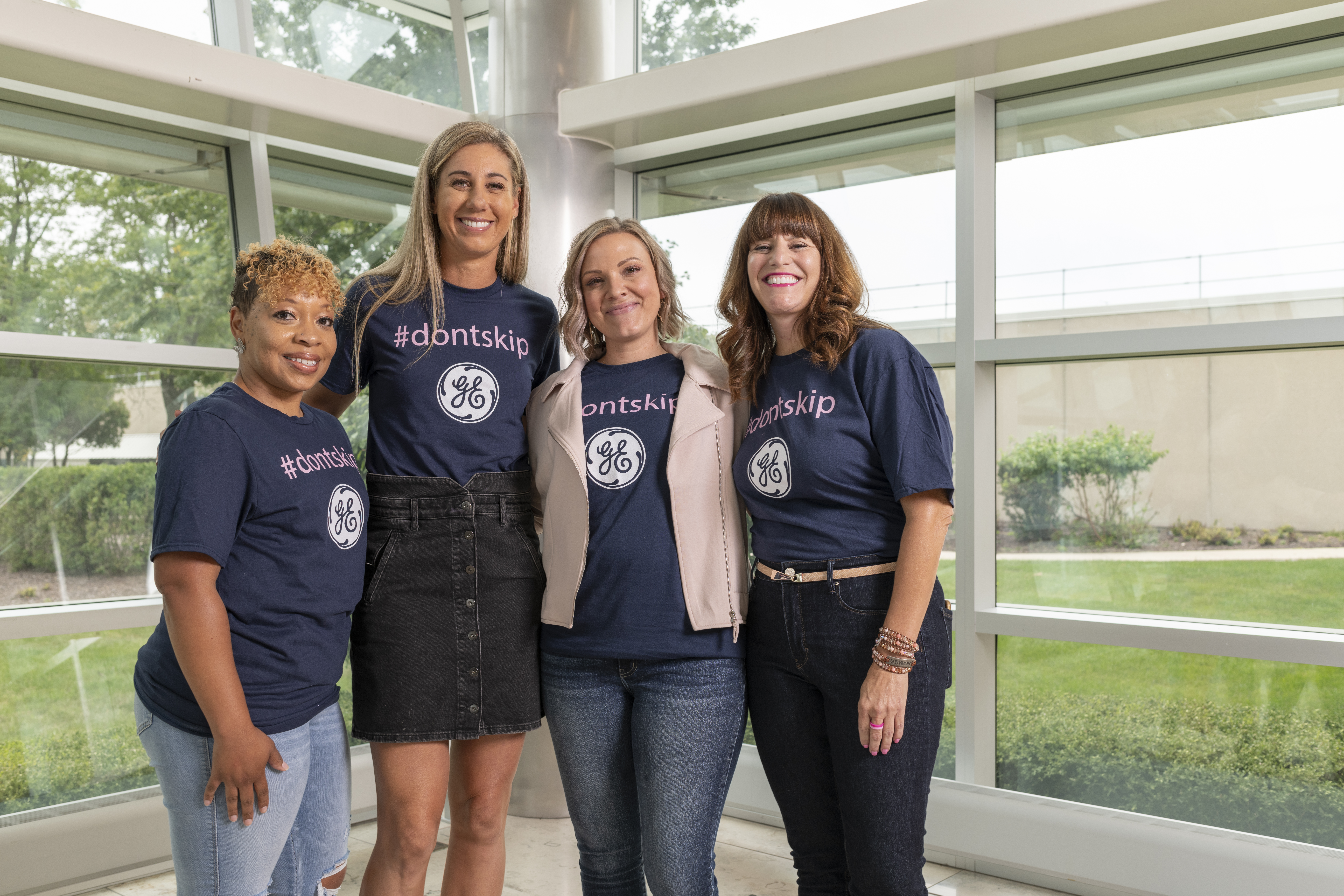By April Ross, Olympic Gold Medalist in Beach Volleyball
There’s a special necklace I carry with me everywhere. When I won my first gold in beach volleyball last Summer in Tokyo, I tapped it and thought of my mom. She passed away from breast cancer when I was in college. This heart-shaped necklace is how I keep her close to me.

April and her mom before she passed away from breast cancer and prior to her qualifying for the Olympics.
April wears her mom’s necklace during the games to bring her support.
My mom never got to see me compete in the Olympics. I know that would have been her greatest wish. As the world turns their eyes to watch athletes compete in the 2022 Winter Games, I’m cheering them on like I know my mom would have done. And I want to bring my voice with an important message for women: #Don’tSkip your annual mammogram.
This year, the #DontSkip message is more important than ever as many Americans have been cautious about visiting their doctor’s office during the COVID-19 pandemic. According to the CDC, breast cancer screenings dropped as much as 87% in the United States at certain times of the pandemic.[1] Experts project reduced screening, delayed diagnosis, and reduced chemotherapy use could cause approximately 2,500 additional deaths from breast cancer in the United States by 2030.[2] That’s 2,500 mothers, wives, daughters and friends whose lives will be cut short too soon. 2,500 women who will miss the chance to see their children reach their dreams, or to achieve their own.
I know it can be incredibly challenging for women to stay on top of this important exam, and with the complication of COVID-19, it’s even harder. But as someone whose life has been impacted by breast cancer, I am here to encourage you to be vigilant about your annual mammogram.
My childhood was heavily affected by breast cancer. My mom was always in or out of remission. As hard as it was for her, she didn’t let the disease define her. But as a young college student, it was tough for me not to let it weigh on me constantly. During my sophomore year in college, things took a turn for the worse. My mom passed away before she ever got to see me win a NCAA title or qualify for the Olympics.
She was a strong woman. She loved the outdoors. She never stopped camping or skiing or rescuing stray cats. She was my inspiration growing up. She still is today.
Knowing what my mom went through, I’m honored to partner with GE Healthcare on its #DontSkip campaign. The fact is mammograms are the gold standard in breast cancer detection, and early detection saves lives:
- According to Breastcancer.org, finding breast cancer early reduces a woman’s risk of dying from the disease by 25-30 percent or more[3]
- In one study, women who have regular mammograms are nearly 60 percent less likely to die of breast cancer than those who don’t[4]
As an athlete, preparation is everything. Plan, check, prepare every detail beforehand so when you step on the court, muscle memory kicks in; you don’t have to think, you just do.
I approach my well-being the same way. Sometimes it’s hard to make those first steps towards taking control of your health. But after you’ve set up a routine it becomes muscle memory. You schedule your annual visits and go every year after that. Putting that effort in on the front end is the hardest part. But once you do it, the routine takes care of itself.
I’m so excited to be part of GE Healthcare’s #DontSkip campaign and proud to collaborate with them to change women’s attitudes towards this life-saving exam. I know my mom is also proud of me. I think of her always: when I score a point, win a medal or while I’m getting my annual mammogram. It’s these moments when I often look up and imagine her watching from above. But sometimes I wonder: what if she could have watched from the stands?
#DontSkip. Because mammograms save lives.
References
[3] https://www.breastcancer.org/symptoms/testing/types/mammograms/benefits_risks#:~:text=Finding%20breast%20cancer%20early%20reduces,is%20minimal%20for%20most%20women.
[4] Paap E, Verbeek AL, Botterweck AA, et al. Breast cancer screening halves the risk of breast cancer death: a case-referent study. Breast (Edinburgh, Scotland). 2014;23(4):439-444. 10.1016/j.breast.2014.03.002.


